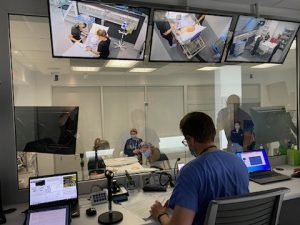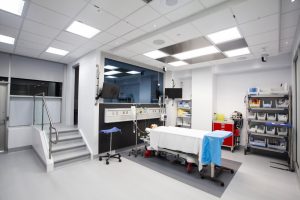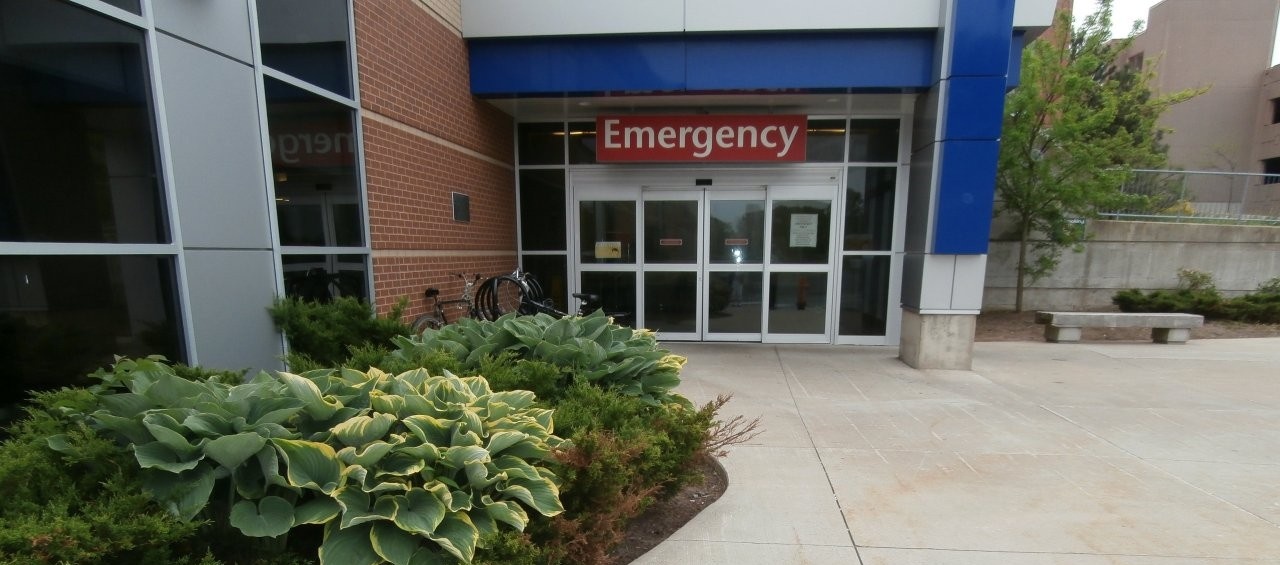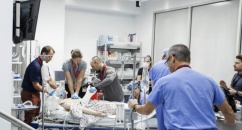Royal College of Physicians And Surgeons of Canada Program
Welcome to the Royal College of Physicians and Surgeons of Canada Specialist in Emergency Medicine Program for the Maritime Provinces. This fast-paced five-year program focused on enhancing skills and competence in Emergency Medicine. Offered since 1990, this is only EM specialist program in Atlantic Canada. There are three Carms PGY-1 spots in this program.
Training Facilities
Our Department of EM includes training sites across all three Maritime provinces. Our learners benefit from access to; 3 tertiary care centers, several regional and community hospitals, a Poison Information Center, trauma team support and regional EMS oversight including disaster planning.
Clinical Faculty
In addition to enthusiasm for EM, our sites include many national and international faculty experts in; airway, medical education, ultrasound, critical thinking and patient safety, disaster medicine, toxicology, leadership with a focus on EDI (Equity, Diversity and Inclusivity) and simulation. Although the clinical faculty hail from around the world, with diverse education backgrounds the RCPS EM residency is a smaller program and our faculty to resident ratio exceeds 10:1 which is highly beneficial to our residents.
Beyond Clinical Teaching
Clinical teaching is augmented by; journal clubs, rounds, trauma rounds, a strong simulation program (SIM), PoCUS education and fellowship , a leading national airway program (the home of AIME), and a Poison Information Center. Each year both EM and EMS departments host Research Day. Research Day is an opportunity for faculty and residents to showcase the department’s ongoing research efforts.
Collaborative Learning
The RCPS EM and CCFP residents benefit from a collegial and collaborative relationship. This relationship exists in the department, academic half and in the SIM session. Residents from both programs learn, work and socialize together.
The Royal College of Physicians and Surgeons program provides a strong set of clinical skills augmented by academic education, research and the opportunity to develop a niche in an area of particular interest. Leadership, education, administration, and research are all significant elements of this program. With fellowship opportunities in EMS, PoCUS, Pediatrics (PEM), both Master of Arts in Education (MAEd) and Master or Education (MEd) degrees. With a state of the art simulation center situated in our ED and many high-level national and international leaders, you will have ample opportunities for professional advancement.
Trouble deciding between programs? This contribution in CanadiEM provides a dual perspective you may find useful.
Program Overview
The program offers three CaRMS entry residency positions this year. Our relatively small cohort of residents benefit from frequent access to staff and ongoing formal and informal assessment throughout their residency. The program is flexible based on the specific needs of residents to achieve the requirements of the Royal College while recognizing individual interests.
Transition to Discipline
Clinical rotations in this stage are:
Emergency Medicine – 3 Blocks
We make great efforts to have as many of your colleague EM residents on service during this time as possible, so you have the opportunity to spend time with your new fellow residents. We also do ‘buddy’ shifts with senior residents who do a great job of orienting new residents to the ins and outs of the department.
Foundations
Clinical rotations in this stage are:
Emergency Medicine – 4 Blocks
Pediatric Emergency Medicine – 2 Blocks
General Surgery (EM Consult) – 1 Block
Plastic Surgery – 1 Block
Orthopedic Surgery – 1 Block
Anesthesia – 1 Block
Core
Clinical rotations in this stage are:
Emergency Medicine – 16 Blocks
Point of Care Ultrasound – 1 Block
Community Emergency Medicine – 1 Block
Pediatric Emergency Medicine – 5 Blocks
Critical Care (ICU) – 3 Blocks
Cardiology (CCU) – 1 Block
Neurology – 1 Block
Obstetrics and Gynecology – 1 Block
Adult Anesthesia – 2 Blocks
Pediatric Anesthesia – 1 Block
Internal Medicine (EM Consult) – 1 Block
Teacher/Leader – 1 Block
Pre-Hospital – 1 Block
Toxicology – 1 Block
Infectious Diseases -1 Block
Psychiatry (EM Consult) – 1 Block
Pediatric Critical Care (PICU) – 1 Block
During the Core stage, residents will gain longitudinal experience in trauma and toxicology, as well as have protected longitudinal research time.
Transition to Practice
Clinical rotations in this stage are:
Emergency Medicine – 7 Blocks
Emergency Medicine Elective -6 Blocks
During the Transition to Practice stage, residents will gain longitudinal experience in trauma and toxicology, as well as have protected longitudinal research time.
Drs. Becca Russell, Program Director and/or Tyler Johnston, Assistant Program Director, would be pleased to meet with you to discuss the RCPS Residency Program. If you would like to arrange a meeting, please contact our Education Coordinator: Lauren Duke RCPSEMProgram@nshealth.ca.




